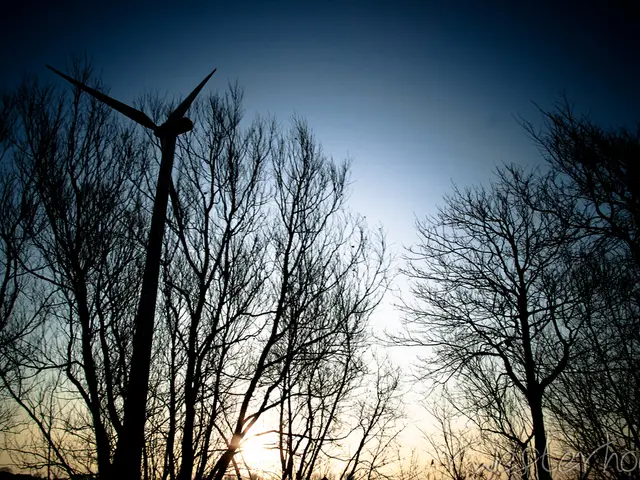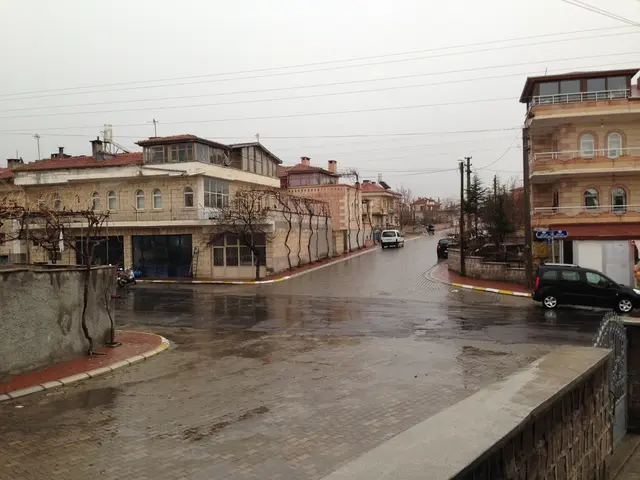Yemeni Houthis pursue propagandistic advantage from fatal US airstrikes
On a Monday, four days following the slaying of 80 individuals due to US airstrikes on a fuel port, the Houthis unleashed a captivating promotional video featuring masked troops storming over the Israeli flag and somersaulting through fiery hoops. This video was synchronized with dramatic music, where masked warriors displayed their expertise in handling automatic weapons, targeting the flags of America, Israel, and Britain – nations partaking in the Yemen offensive since January of last year.
The Houthis, linked to Iran's "resistance axis" against Israel and the U.S., have showcased their solidarity with Gaza throughout the Israel-Hamas conflict, launching assorted missiles and drones at both Israel and vessels traversing the crucial Red Sea shipping route. Consequently, the administration of President Donald Trump has taken a tougher stance on the group, reclassifying it as a terrorist organization and executing near-daily airstrikes, resulting in over 200 fatalities since mid-March.
According to Thomas Juneau, a Middle East specialist at the University of Ottawa, the Houthis purposefully exploit these intensive airstrikes for propaganda, aiming to promote themselves as champions of the resistance against the U.S. and its regional allies to gain domestic support.
Paramilitary Recruitment
On a regular basis, the Houthis hold rallies against the U.S. and Israel, which are attended by vast crowds in the rebel-held capital, Sanaa. They urge Yemenis to mobilize and have claimed that tens of thousands have signed up for military training since the onset of the Gaza conflict. In February of last year, Human Rights Watch warned about an increase in child recruitment by the Houthis' armed forces following the beginning of the Gaza war in October 2023.
During interviews with survivors of the recent Ras Issa fuel port attack – the deadliest in the US campaign – rebel television aired their commitments to supporting Gaza despite their injuries. The escalating US actions could potentially intensify Houthi mobilization and recruitment, according to Yemen expert, Mohammed Albasha. However, the US raids have also managed to destroy some Houthi military capabilities and have forced their leadership to retreat, as per analysts.
The Houthis have proven resilient in the face of a decade of air strikes from a Saudi-led coalition and over a year of US attacks on Red Sea shipping. "The American bombing campaign is unlike anything we have seen before in terms of relentlessness and pursuit of Houthi leadership," stated Maged al-Madhaji, chairperson of the Sanaa Center for Strategic Studies.
Economic Stranglehold
Aside from military strikes, Washington is choking the Houthis financially by imposing sanctions on banks, striking infrastructure like the Ras Issa fuel terminal, a significant source of energy and revenue for the Houthis' precarious economy. The re-designation of the Houthis as a terror organization makes it risky for companies to operate in their territory, as doing so could lead to their own sanctions.
"The economic damage is far beyond just the military strikes," said Baraa Shiban, a Yemen specialist at Britain's Royal United Services Institute. He also questioned the effectiveness of Houthi propaganda among a population already suffering from over a decade of war with the Saudi-led coalition. "The population is disheartened, drained, and manifestly yearns for an end to the cycle of violence," Shiban added.
- The Houthis, an Iraq-backed militia, have displayed their solidarity with Gaza during the Israel-Hamas conflict, firing missiles and drones at both Israel and ships navigating the Red Sea shipping route.
- President Trump's administration has responded to the Houthis' actions by reclassifying them as a terrorist organization and carrying out near-daily airstrikes, causing over 200 fatalities since mid-March.
- Houthi propaganda aims to portray them as champions of the resistance against international forces, including the United States, Israel, and Britain, to garner domestic support.
- The Houthis recruit paramilitary forces through regular rallies in Sanaa, urging Yemenis to join, and have reportedly seen tens of thousands enlist since the start of the Gaza conflict. Human Rights Watch warned about an increase in child recruitment by the Houthis' armed forces following the beginning of the Gaza war in October 2023.
- Aside from military strikes, the United States is also applying financial pressure on the Houthis by imposing sanctions on banks and targeting infrastructure such as the Ras Issa fuel terminal, a crucial source of revenue for the Houthis' economy.
- The Houthis have shown resilience against over a decade of air strikes from a Saudi-led coalition and more than a year of US attacks on Red Sea shipping, according to Maged al-Madhaji, chairperson of the Sanaa Center for Strategic Studies. However, the population in the area is experiencing disheartening consequences from the ongoing war, yearning for an end to the cycle of violence.









